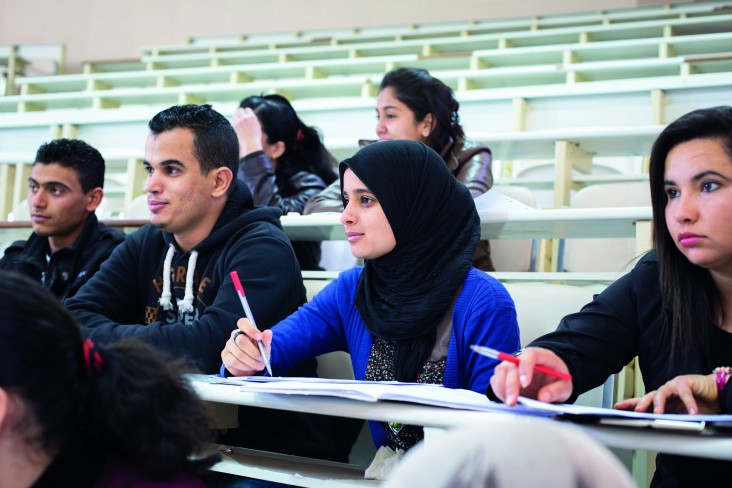Speeches Shim

The United States Agency for International Development (USAID) supports Tunisia’s democratic and economic transition as the Tunisian people consolidate the gains of the 2011 Jasmine Revolution. By advancing an inclusive, accountable political system and dynamic, private sector-led economic growth, USAID assistance promotes prosperous and resilient communities across the country. Since 2011, USAID has provided approximately $300 million to support Tunisia’s economic growth and democracy.
Our Work
Tunisians have shown their commitment to the democratic process and key economic reforms to expand the space for political participation and economic opportunity. USAID is responding Tunisian requests to support democratic governance and economic growth.
JOBS AND ECONOMIC GROWTH
Following the Revolution, USAID provided a broad range of economic assistance and partnerships to support economic policy reform and create an environment conducive to growth and job creation. USAID put in place $985 million in sovereign loan guarantees to support the country’s economic stabilization and economic reform goals. Currently, USAID supports these economic reforms through technical assistance provided by the Tax and Customs Project (TCP), providing analytic and policy assistance to the Ministry of Finance to support the economic reform agenda needed to liberalize the Tunisian economy. USAID increased access to capital through the Tunisian American Enterprise Fund (TAEF), which is poised to invest between $18 million and $20 million in Tunisian firms by the end 2016. USAID is implementing projects to increase the competitiveness of Tunisia’s small and medium size enterprises, drive economic growth and create sustainable, private sector jobs. Altogether, USAID’s support for over 300 small and medium size enterprises and entrepreneurs has created direct, sustainable private sector jobs for over 14,000 Tunisians since the Revolution.
DEMOCRACY AND GOVERNANCE
USAID’s goal is to support Tunisia’s democratic consolidation, by investing in Tunisian initiatives that advance accountability and inclusion to support social cohesion. As part of this effort, USAID assisted Tunisia in organizing and administering what were widely hailed as free and fair multiparty elections for a Constituent Assembly to draft Tunisia’s constitution. Currently, USAID works with the government and civil society to support a more permissive legal environment for non-governmental organizations. USAID also supports Tunisian civil society organizations’ participation in a regional community of practice to enhance their knowledge and ability to advance positive youth development and resilience in their own communities.
SCIENCE, TECHNOLOGY, INNOVATION AND GLOBAL PARTNERSHIPS
USAID’s programs work to assist Tunisians as they protect their water resources amidst a changing climate that will produce more stress on local water supplies. Through multiple regional programs, USAID is providing support to Tunisian research, technology development, and governance of water resource activities to improve the efficiency, management, and environmental impact of water use and supply across economic sectors.
USAID’s Partnership for Enhanced Engagement in Research (PEER) supports projects that lay the foundation for empowering citizens, strengthening civil society, and solidifying and expanding science and technology in Tunisia. Lead researchers have applied for PEER research funds that focus on (1) biotechnology as it is applied to health and agricultural sciences; (2) projects related to renewable energy, including hydropower, as well as general sustainable development issues; and (3) Information and Communication Technology, as related specifically to geographic information systems and network security.
USAID’s program, Responding to Key Populations in the Middle East and North Africa (MENA) Region, supports Tunisian civil society organizations to promote behavioral, biomedical and structural interventions to reduce the spread of infection among key populations and support people living with HIV.

Comment
Make a general inquiry or suggest an improvement.